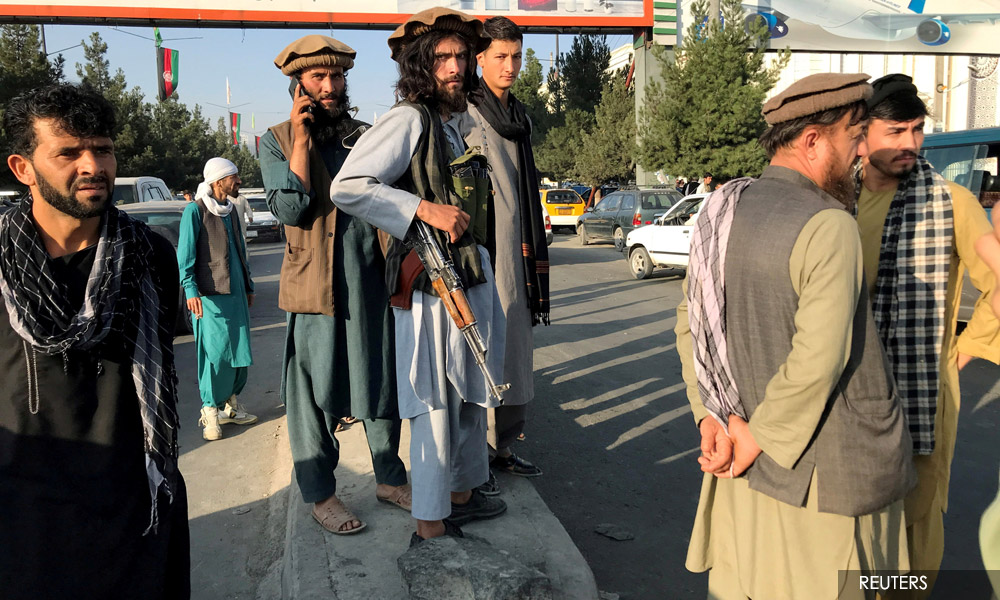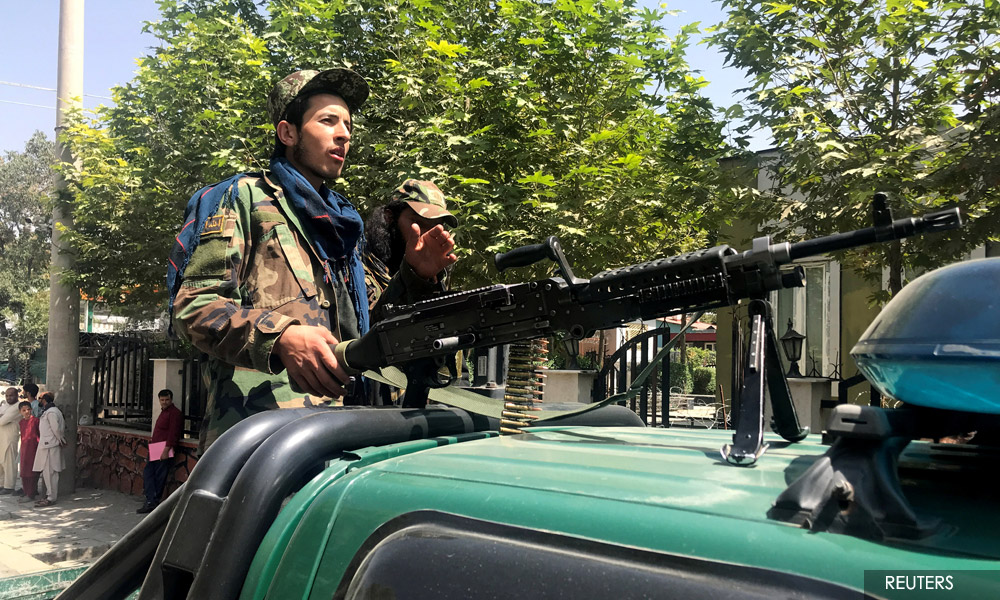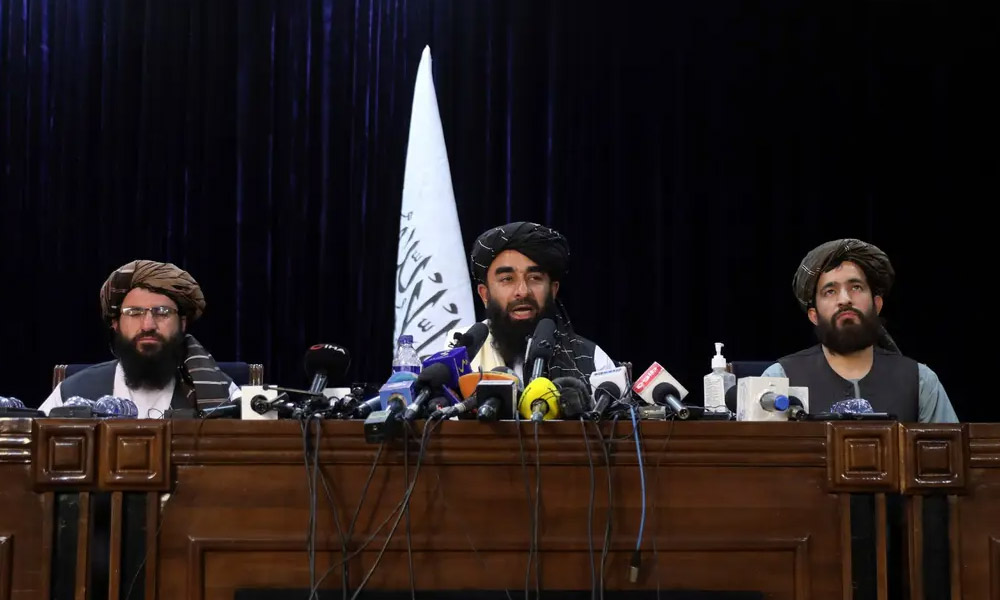Editor’s Note: Names and some identifiable information have been changed to protect the safety of those involved.
It has been 11 days since the Taliban entered the Afghan capital of Kabul, where Wahed’s family lives.
His sisters back home are already contemplating suicide as a way out of the possible horrors that await them.
As a refugee far away in Malaysia, Wahed feels helpless but said he had to do something as he watches the situation unravel.
The young man barely sleeps, spending every waking hour racing to find some way to get his family out of the country.
Remaining in Afghanistan is not an option because they are Hazara, the country’s third-largest ethnic tribe and a frequent target of the Taliban.
Wahed's family is faced with just two options - leave now or flee before they are killed.
“I asked my mum and sisters what they would do if the Taliban came.
“Both my sisters said they will never accept the Taliban coming to their house, searching their house or touching their bodies.
“Before the Taliban comes, they said they would all poison themselves and kill themselves. They would attempt suicide before the Taliban attacked their house,” he relayed in a recent interview with Malaysiakini.
Wahed did not baulk at the horrific and extreme measures his sisters were talking about.
Given the desperate circumstances, he even agreed that this was perhaps the “best way” should his family fail to escape in time.

During the interview, Wahed’s eyes lit up as he repeatedly gushed about his intelligent, tech-savvy and ambitious sisters.
One was already in university while the other had been studying to get into university.
It broke his heart to hear them wish they were not alive, and female.
Wahed rued how the Taliban advance had dashed not just his sisters’ dreams but also that of tens of thousands of Afghans.
“This is like a black dream for every single Afghan citizen.
“The Taliban are like a black dream. A black night that I hope finishes fast,” he said.
Explosions en route to education
Growing up, explosions frequently disrupted Wahed’s education.
These blasts would sometimes happen several times a week.
He remembered his 40-minute walk to school as a route that was paved with as much danger as there was a promise.
“After every explosion, our family would say ‘ok no more school, it is dangerous’.
“But after one week we would get tired of staying at home, of feeling hopeless, and we would say ‘whatever happens, we want to study’. Then we would start to go to school again.
“But then another explosion would happen and my family would ask us to stop studying,” he recalled.
With such experiences, Wahed had only known Afghanistan as a country at war.
Many of his relatives had been killed by the Taliban back in the late 1990s when the group controlled most of the country.

However, after 20 years of US-backed civil rule, he had learned to perceive the militant group as a distant threat.
So normalised was he to news about explosions and conflict that he was caught off guard when the Taliban entered Kabul last Sunday (Aug 15).
“War was in Afghanistan all the time. I thought this was like all those times. I thought they would not come to Kabul, but only be in the villages.
“But then, suddenly, they were taking more and more provinces. It was unbelievable when I saw news that they had taken over Kabul city,” Wahed said.
The Taliban’s rapid advance took place as the US withdrew its troops from the country ahead of the Aug 31 deadline it had sent.
Please be kind to refugees
As chaos overruns his homeland, Wahed can only read, watch and pray from his apartment in Malaysia.
He dreamed of a world that knew Afghanistan, not for extremism but for its rolling hills rich with cherries, apricots and pomegranates; for its “heavenly” naturescapes that changed colour every season; for its friendly and generous people.
This, he said, was the “beautiful” Afghanistan obscured by all those tragic headlines.
As for why he wanted to share his story with Malaysians, Wahed hoped to dissuade Taliban sympathisers.
In the past, the militant group had imposed harsh restrictions on women, barring them from studying, working, driving, wearing makeup or leaving the house without a male family member.
Girls in their early teens were expected to be married.
“To the people who said congratulations to the Taliban, I hope they know how they beat women.
“Imagine if this happened to your own family, then you will know how dangerous this is,” he said.
After seizing control last week, a Taliban spokesperson said women would be allowed to work and study and “will be very active in society but within the framework of Islam”.

These pledges were met with scepticism after female bank officials were forced to leave their jobs.
Wahed also hoped Malaysians would try to understand refugees.
“Imagine growing up all your life in a house, in your homeland. But suddenly you have to leave with just the clothes on your back due to a bad situation.
“Nobody ever wants to do this. Nobody wants to have to run away,” he said.
Wahed further hoped refugees in Malaysia would be treated with kindness.
He noted that he was often spared ill-treatment due to his light-coloured skin, unlike his counterparts with darker skin tones.
“It is not in our control to decide where we are born, which race we are, which religion we are born into or which family we have.
“Please just be kind with each other,” he urged.
According to the United Nations High Commissioner for Refugees (UNHCR), it had registered some 179,450 refugees and asylum seekers in Malaysia as of July 2021.
Of this number, 2,610 are Afghan nationals. - Mkini




No comments:
Post a Comment
Note: Only a member of this blog may post a comment.